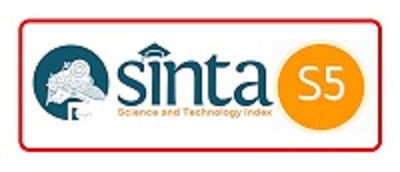Analisis Pengaruh Aspek Keperilakuan Terhadap Sistem Informasi Akuntansi
DOI:
https://doi.org/10.29240/disclosure.v1i1.2937Keywords:
Ettitude, motivation, perception, use of the accounting system,Abstract
The purpose of this study was to analyze the behavioral aspects of the accounting information system at Pt. Mandiri Tunas Finance Bengkulu branch is a service company engaged in banking, especially in the automotive financing sector.The purpose of this study was to analyze the behavioral aspects of the accounting information system at Pt. Mandiri Tunas Finance Bengkulu branch is a service company engaged in banking, especially in the automotive financing sector.From hypothesis testing, it is found that behavioral aspects (behavior, motivation, perception) have no significant effect on the accounting information system run by the company.In this study, attitudes have no significant effect on the accounting information system because employees do their work in accordance with applicable rules so that behavior is classified as good. Motivation also has no significant effect on accounting information systems. This shows that the company''s management has motivated employees in the form of rewards or moral support. Perception also has no significant effect on the existing accounting information system at Pt. Mandiri Tunas Finance Bengkulu branch. This is because the way of thinking, tasks and work done by employees is good.
Downloads
References
Akay, (2016). Analisis Keperilakuan terhadap Penerapan Sistem Akuntansi Persedian pada Pt. Surya Wenang Indah ManadoJurnal EMBA Vol 4 No1.
Apriwandi, (2013). Pengaruh Aspek keperilakuan Akuntansi Manajemen terhadap Kinerja Manajer dalam Partisipasi Anggaran pada Manajer Rumah Sakit Sejawa Tengah.
Fadhilah, (2018). Konsep Keperilakuan dari Psikologi dan Psikologi sosial. Universitas Medan Area Medan (ID).
Ghozali Imam, (2011). Aplikasi Analisis Multivariate Dengan Program SPSS. Semarang: Badan Penerbit Universitas Diponegoro.
Hermawan, (2009). Informasi Akuntansi Manajemen untuk Pengembalian Keputusan dan Kinerja Manajerial. Jurnal Ekonomi Manajemen dan Akuntansi (EMISI), FE UMSIDA Vol 2 N 1.
Indrawan dan Yaniawati, (2014). Metodologi Penelitian Refika Aditama. Jakarta
Jumaili, S, (2005). Kepercayaan terhadap teknologi sistem Informasi baru dalam evaluasi kinerja individual. Kumpulan Materi Simposium Nasional Akuntansi VIII.
Lubis, Ikhsan Arfan, (2017). Akuntansi Keperilakuan Edisi Tiga. Salemba Empat. Jakarta
Mirani, (2011). Faktor Keperilakuan Organisasi terhadap Keguanaan Sistem Informasi Akuntansi Keuangan Daerah dengan Konflik Kognitif dan Konflik Efektif sebagai Intervening.
Oktaviani, Afifidin, Abdul Wahid Mahsuni, (2020). Pengaruh Keperilakuan terhadap keguanaan sistem keuangan akuntansi daerah. E-JRA Vol.09
Reeve,Jonathan,Warren, James,Supriyanto, Wahyuni, DjakmandanJusuf. (2013). Pengantar Akuntansi. Salemba Empat. Jakarta
Supriyanto, R.A (2018). Akuntansi Keperilakuan. Gadjah Mada University Prees Yogyakarta
Sugiono, (2013). Metode Penelitian Kuantitati Kualitatif dan R&D. Bandung. Alfabeta
Sujarweni, Wiratna. (2015). Sistem Akuntansi. Pustaka Baru Press. Yogyakarta
Downloads
Published
How to Cite
Issue
Section
Citation Check
License
Copyright (c) 2021 Emilda Sulastri

This work is licensed under a Creative Commons Attribution-ShareAlike 4.0 International License.
Authors who publish with this journal agree to the following terms:
- Authors retain copyright and grant the journal right of first publication with the work simultaneously licensed under a Creative Commons Attribution License (CC BY-NC-SA 4.0) that allows others to share the work with an acknowledgment of the work's authorship and initial publication in this journal.
- Authors are able to enter into separate, additional contractual arrangements for the non-exclusive distribution of the journal's published version of the work (e.g., post it to an institutional repository or publish it in a book), with an acknowledgment of its initial publication in this journal.
- Authors are permitted and encouraged to post their work online (e.g., in institutional repositories or on their website) prior to and during the submission process, as it can lead to productive exchanges, as well as earlier and greater citation of published work (See The Effect of Open Access).














